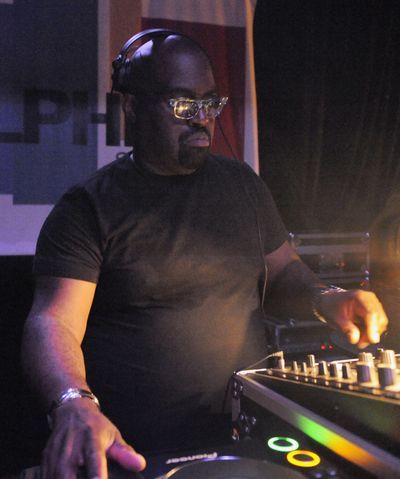Producer Knuckles’ sensibility transformed decades of house music

Many who saw social media posts Tuesday about Frankie Knuckles may have been baffled, wondering whether perhaps an old-time pugilist had passed. In a sense this was true, but instead of his fists, the Chicago dance music producer Knuckles, who died Monday at age 59, used steady, relentless rhythms to send his message.
In the process, he helped set a course for house music in the 1980s and for electronic dance music in the decades to come.
House music was born in Chicago when Knuckles, Marshall Jefferson, Jesse Saunders and other young DJs brought the ideas and energy of the late 1970s New York City loft scene to the Midwest and started messing with its sounds. Knuckles, born Francis Nicholls, was among the most transformative of those artists.
In fact, the DJ and producer is one of the key connectors of American electronic beat music, bridging the New York scene through his work with famed DJ Larry Levan and planting the seeds of Detroit techno through Knuckles’ early relationship with important producer Derrick May.
The sound Knuckles made was hard, mesmerizing and repetitive, focusing on Roland 808 drum machines and bass-line generators, strange synthetic washes that were as trippy as they were alien. One of his key works from this period, “Baby Wants to Ride,” sounds as fresh today as it did when released in 1987.
House spread from a regional to an international sound as Knuckles, Saunders and Jefferson started DJing in Europe, where they jumpstarted the British rave scene. From there the steady thump that Knuckles helped codify spread and morphed, becoming a catch-all genre beneath which subgenres including progressive house, microhouse, happy house, tech house and dozens of others have proliferated.
Pop music royalty understood this. A list of Frankie Knuckles remixes reads like a history of dance pop: Michael Jackson, Madonna, Janet Jackson, Depeche Mode, Pet Shop Boys, Whitney Houston and others commissioned him to rework their recordings.
My favorite of them is Knuckles’ remix of Hercules and Love Affair’s “Blind,” a glorious 2008 post-disco New York jam that in the Chicago godfather’s hands becomes something majestic. An eight-minute slow build that adds layers every 16 bars until this beast of a groove rises, the song features vocalist Antony Hegarty in perfect form. Knuckles understood this, and like much of his work, crafted his music as a pedestal for his singer, giving space to shine by surrounding voice with groove.
Even more, the sounds Knuckles created were pedestals for dancers, each crafted to levitate sweaty late-night revelers to a place a few levels above the ground. Some people call that the astral plane. For Knuckles, it was called house.